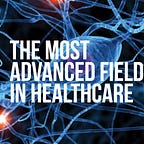European Investment, New Trials for Tremor Therapy & Tattoo-Like Electrode
AABM News Roundup: October 2020
Lead Stories: October 2020
In the last month, several prominent European companies in the neuromodulation and neurostimulation space have received major investments. This influx of cash reflects the impressive growth of the field:
“Devices are getting more sophisticated, and new disease indications are opening up…the technology has now reached a point where there are effective examples of its use on the market.”
To learn more about how the field is drawing the attention of investors, see: Investment Is Pouring Into Neuromodulation Treatments, LabioTech.edu, October 7, 2020
Cala Health received breakthrough device designation for its Cala Trio treatment for action tremor in people with Parkinson’s disease. The company plans to start clinical trials by the end of 2020. If trials are successful, the therapy could benefit additional patient groups:
“The company believes its indications can be expanded because many patients with Parkinson’s experience the same action tremor as those with ET, according to a news release.”
For more information on this promising regulatory clearance, visit: Cala Health wins FDA breakthrough nod for tremor treating therapy, Mass Device, October 22, 2020
Tattoos are more often associated with bikers than with doctors. But what if an electrode that looks just like a tattoo could help improve your health? A group of researchers from China and the United States have highlighted the major advantages this technology can offer:
“Epidermal electrophysiology is widely carried out for disease diagnosis, performance monitoring, human-machine interaction, etc. Compared with thick, stiff and irritating gel electrodes, emerging tattoo-like epidermal electrodes offer much better wearability and versatility.”
For a detailed examination of this technology, see: Electrically compensated, tattoo-like electrodes for epidermal electrophysiology at scale, Science Advances, October 23, 2020
Industry News
CB Insights reports digital health, global healthcare investment funding records, MassDevice, October 20, 2020
- “Analysts highlighted robotic surgery as a space that continued to raise capital despite the deferral of elective procedures that has been brought on by the pandemic, while novel neurostimulation devices also received a mention for gaining steam with investments and clinical milestones.”
Neurostimulation Devices Market: Healthcare Companies Explore Effects of Multiple Electrophysiological Mechanisms to Improve Efficacy in Neuromodulation, BioSpace, October 9, 2020
- “The trend of implantable neurostimulation technologies is driving the growth of the neurostimulation devices market. Companies are exploring untapped opportunities in the development of new lead interfaces in external pulse generators.”
Corporate News
Remote electric neuromodulation device approval extended to treatment of chronic migraine, Healio, October 27, 2020
- “The FDA has expanded the approval for Nerivio, a wearable remote electrical neuromodulation device controlled by a smartphone app, to treat chronic migraine in adults aged 18 years and older.”
- Nerivio was also mentioned in an article from Nature titled, “The unique demands of childhood migraine,” on October 14th
Axonics launches SNS postmarket study, Mass Device, October 20, 2020
- “The Axonics Sacral Neuromodulation System Registry (Artistry) Study is a prospective, multicenter registry with plans to enroll up to 300 patients across 30 centers in the U.S. and Canada to collect and analyze real-world data from patients treated with the r-SNM system.”
A Year After Partnering with iota, Astellas Snaps Up the Company, BioSpace, October 15, 2020
- “Last year, Astellas and iota formed a collaborative research and development agreement to explore new biosensing and treatment measures using ultra-small implantable medical devices. Under the terms of the initial collaboration, the companies planned to design implantable medical devices and conduct preclinical studies for several diseases with high unmet medical needs. Astellas previously invested in the company in 2018.”
- “iota…develops millimeter-sized implantable medical devices…[that use]. Ultrasound as a tool for power supply.”
Research News
Researchers look to control organ function through new computational model, Florida International University, October 29, 2020
- “Through the National Institutes of Health’s (NIH) Stimulating Peripheral Activity to Relieve Conditions (SPARC) program, Danziger and researchers from other institutions across the nation have received more than $1 million in funds. Their goal is to create a computational model using machine learning that can guide the development of new therapeutic electrical signal stimulations and effectively identify a nerve that can control the bladder.”
Artificial intelligence model detects asymptomatic Covid-19 infections through cellphone-recorded coughs, MIT News, October 29, 2020
- “In a paper published recently in the IEEE Journal of Engineering in Medicine and Biology, the team reports on an AI model that distinguishes [COVID-10] asymptomatic people from healthy individuals through forced-cough recordings.”
- “When [researchers] fed the [AI] model new cough recordings, it accurately identified 98.5 percent of coughs from people who were confirmed to have Covid-19, including 100 percent of coughs from asymptomatics — who reported they did not have symptoms but had tested positive for the virus.”
Treating ringing in the ears with Sound and electrical stimulation of the tongue, Science Daily, October 15, 2020
- “In the largest clinical trial of its kind, researchers [from the University of Minnesota] show that combining sound and electrical stimulation of the tongue can significantly reduce tinnitus, commonly described as ‘ringing in the ears.’ They also found that therapeutic effects can be sustained for up to 12 months post-treatment.”
· Also published in Science Translational Medicine
Treatment begins in pivotal study of rechargeable sacral neuromodulation device for OAB, Urology Times, October 6, 2020
- “The first patient has been implanted with the InterStim Micro neurostimulator in the ELITE study, which is examining the rechargeable sacral neurostimulation (SNS) system in patients with overactive bladder (OAB).
- “Through the ELITE study, our goal is to further validate existing data that sacral neurostimulation is a safe, long-term solution for patients who are limited professionally, personally, and socially by their condition.” — Keith Xavier, MD, founding partner of Urology Partners.
